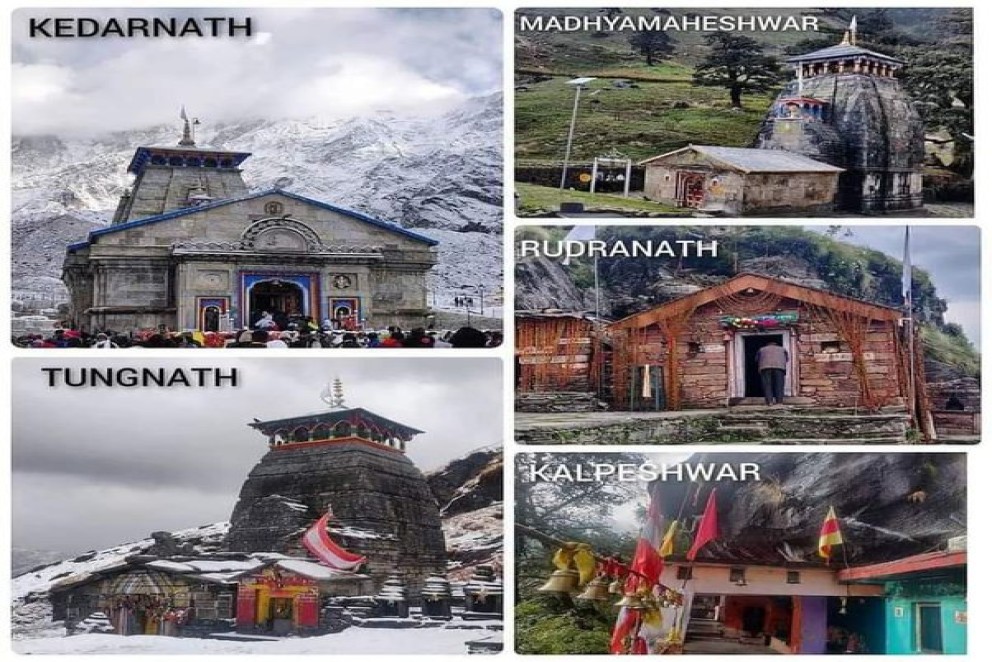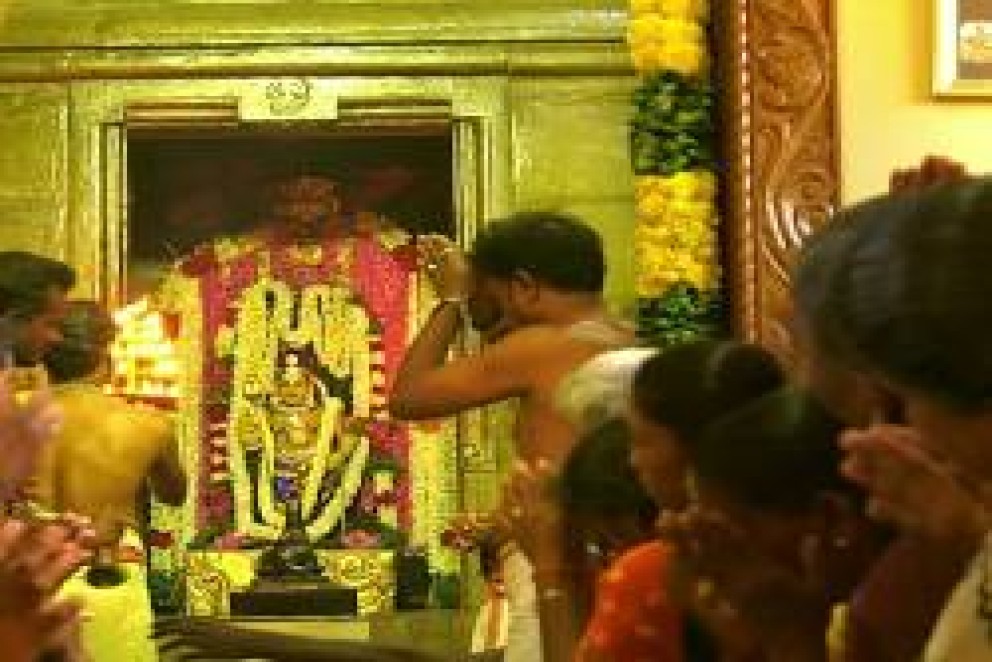Blog Details

A Comprehensive Guide to the Char Dham Route from Haridwar, Dehradun, and Rishikesh
The Char Dham Yatra, a pilgrimage of profound spiritual significance, encompasses a journey to four revered Hindu shrines nestled in the heart of the Himalayas. Originating from Haridwar, Dehradun, or Rishikesh, the journey traverses through a landscape adorned with majestic mountains, glistening rivers, and quaint villages. Each city along this divine route offers a unique blend of spirituality, natural beauty, and cultural heritage, making the Char Dham Yatra an unforgettable experience for pilgrims and travelers alike
Haridwar
Har Ki Pauri: A revered ghat where the evening Ganga Aarti is performed.
Chandi Devi Temple and Mansa Devi Temple: Situated atop hills, offering panoramic views of the city.
Maya Devi Temple: One of the Siddhapeethas and a significant pilgrimage site
Rishikesh


Ram Jhula and Lakshman Jhula: Iconic suspension bridges offering breathtaking views of the Ganges.
Parmarth Niketan and Sivananda Ashram: Renowned yoga and meditation centers.
Neelkanth Mahadev Temple: Dedicated to Lord Shiva, nestled amidst lush greenery.
Dehradun

Robber's Cave: A natural cave formation surrounded by lush greenery.
Tapkeshwar Temple: Dedicated to Lord Shiva, situated in a picturesque location.
Forest Research Institute: A colonial-era building housing a museum and botanical gardens.
Yamunotri

Yamunotri Temple: Dedicated to Goddess Yamuna, situated amidst snow-capped peaks.
Surya Kund and Divya Shila: Natural thermal springs and a sacred rock pillar.
Gangotri
Surya Kund and Divya Shila: Natural thermal springs and a sacred rock pillar.
Gangotri

Gangotri Temple: Dedicated to Goddess Ganga, situated amidst majestic mountains.
Gaumukh: The snout of the Gangotri Glacier, a sacred pilgrimage site.
Pandava Gufa: Mythological caves associated with the Pandavas from the Mahabharata.
Kedarnath


Kedarnath Temple: Dedicated to Lord Shiva, situated amidst snow-capped peaks at an altitude of 3,583 meters.
Bhairavnath Temple: A shrine dedicated to Bhairava, situated near Kedarnath Temple.
Triyuginarayan Temple: Believed to be the venue of Lord Shiva and Goddess Parvati's wedding.
Badrinath

Badrinath Temple: Dedicated to Lord Vishnu, situated along the banks of the Alaknanda River.
Tapt Kund and Surya Kund: Natural thermal springs believed to have medicinal properties.
Neelkanth Peak: A majestic snow-clad peak towering over the Badrinath Valley.
Rudraprayag

Sangam: Confluence of two rivers, offering a tranquil setting for meditation and prayer. Surrounded by lush greenery and towering mountains, providing ample opportunities for nature walks and photography.
Barkot


Yamunotri Temple: Although technically not in Barkot, pilgrims often start their trek to Yamunotri from here.
Jalmagna Shivling: A natural rock formation resembling the Shivling, believed to be submerged in the Yamuna River.
Harsil

Mukhwa Village: A scenic village known for its traditional wooden houses and terraced fields.
Wilson Cottage: A British-era bungalow offering panoramic views of the Himalayas and the Bhagirathi River.
Uttarkashi


Sangam: Confluence of two rivers, offering a tranquil setting for meditation and prayer. Surrounded by lush greenery and towering mountains, providing ample opportunities for nature walks and photography.
Barkot


Yamunotri Temple: Although technically not in Barkot, pilgrims often start their trek to Yamunotri from here.
Jalmagna Shivling: A natural rock formation resembling the Shivling, believed to be submerged in the Yamuna River.
Harsil

Mukhwa Village: A scenic village known for its traditional wooden houses and terraced fields.
Wilson Cottage: A British-era bungalow offering panoramic views of the Himalayas and the Bhagirathi River.
Uttarkashi

Vishwanath Temple: Dedicated to Lord Shiva, one of the holiest shrines in Uttarkashi.
Nehru Institute of Mountaineering: A renowned institute offering courses in mountaineering and adventure sports.
Maneri Dam: A picturesque dam built across the Bhagirathi River, offering scenic views and boating facilities.
Guptkashi
Nehru Institute of Mountaineering: A renowned institute offering courses in mountaineering and adventure sports.
Maneri Dam: A picturesque dam built across the Bhagirathi River, offering scenic views and boating facilities.
Guptkashi

Vishwanath Temple: A sacred temple dedicated to Lord Shiva, believed to be the winter seat of Kedarnath.
Ardhanarishvara Temple: Dedicated to Lord Shiva and Goddess Parvati, showcasing exquisite architecture and intricate carvings.
Chopta: A picturesque hill station known for its meadows, dense forests, and panoramic views of the Himalayas.
Chamba

Tehri Dam: One of the tallest dams in India, offering panoramic views of the Tehri Lake and surrounding mountains.
Surkanda Devi Temple: A sacred temple dedicated to Goddess Parvati, situated atop a hill offering stunning views of the Himalayas.
New Tehri: A modern town built after the old Tehri town was submerged under the waters of the Tehri Lake.
Gaurikund

Gauri Temple: Dedicated to Goddess Parvati, situated near the hot water spring believed to be visited by the goddess.
Surya Kund: A natural hot water spring where pilgrims take a holy dip before starting their trek to Kedarnath.
Bhairav Temple: A sacred temple dedicated to Lord Bhairav, situated on the banks of the Mandakini River.
Tilwari
A small village located en route to Badrinath, Tilwari offers breathtaking views of the Alaknanda River and surrounding mountains. The road from Joshimath to Tilwari passes through rugged terrain, offering glimpses of snow-capped peaks and dense forests. Weather in Tilwari is cold during the pilgrimage season, with temperatures ranging from 0°C to 10°C.
Alaknanda River: A sacred river revered by pilgrims, offering opportunities for river rafting and fishing.
Kalpvriksha: An ancient tree believed to fulfill wishes, situated near the banks of the Alaknanda River.
A picturesque village located en route to Badrinath, Rampur offers stunning views of the Alaknanda River and surrounding mountains. The road from Tilwari to Rampur passes through scenic valleys and dense forests, offering glimpses of diverse flora and fauna. Weather in Rampur is cold during the pilgrimage season, with temperatures ranging from 0°C to 10°C.
Places to see in Rampur:
Kalpvriksha: An ancient tree believed to fulfill wishes, situated near the banks of the Alaknanda River.
Rampur
A picturesque village located en route to Badrinath, Rampur offers stunning views of the Alaknanda River and surrounding mountains. The road from Tilwari to Rampur passes through scenic valleys and dense forests, offering glimpses of diverse flora and fauna. Weather in Rampur is cold during the pilgrimage season, with temperatures ranging from 0°C to 10°C.
Places to see in Rampur:
Narad Kund: A sacred kund believed to have been created by the sage Narada, situated near the confluence of the Alaknanda and Saraswati rivers.
Vyasa Gufa: A cave where the sage Vyasa is believed to have composed the Mahabharata, situated near the confluence of the Alaknanda and Saraswati rivers.
Joshimath

A vibrant town nestled amidst the Garhwal Himalayas, Joshimath serves as a popular base camp for pilgrims visiting Badrinath and Hemkund Sahib. The road from Rampur to Joshimath offers panoramic views of the Himalayan landscape, albeit with some steep and winding sections. Weather in Joshimath is pleasant during the pilgrimage season, making it an ideal
The Char Dham Yatra is not merely a journey of physical endurance but also a spiritual odyssey that touches the soul of every pilgrim. As one traverses through the sacred cities and villages along this divine route, they are immersed in the timeless traditions, unparalleled beauty, and profound spirituality of the Himalayas. Each city and town along the way offers its own unique charm, making the Char Dham Yatra an unforgettable experience that lingers in the hearts of pilgrims for a lifetime.





